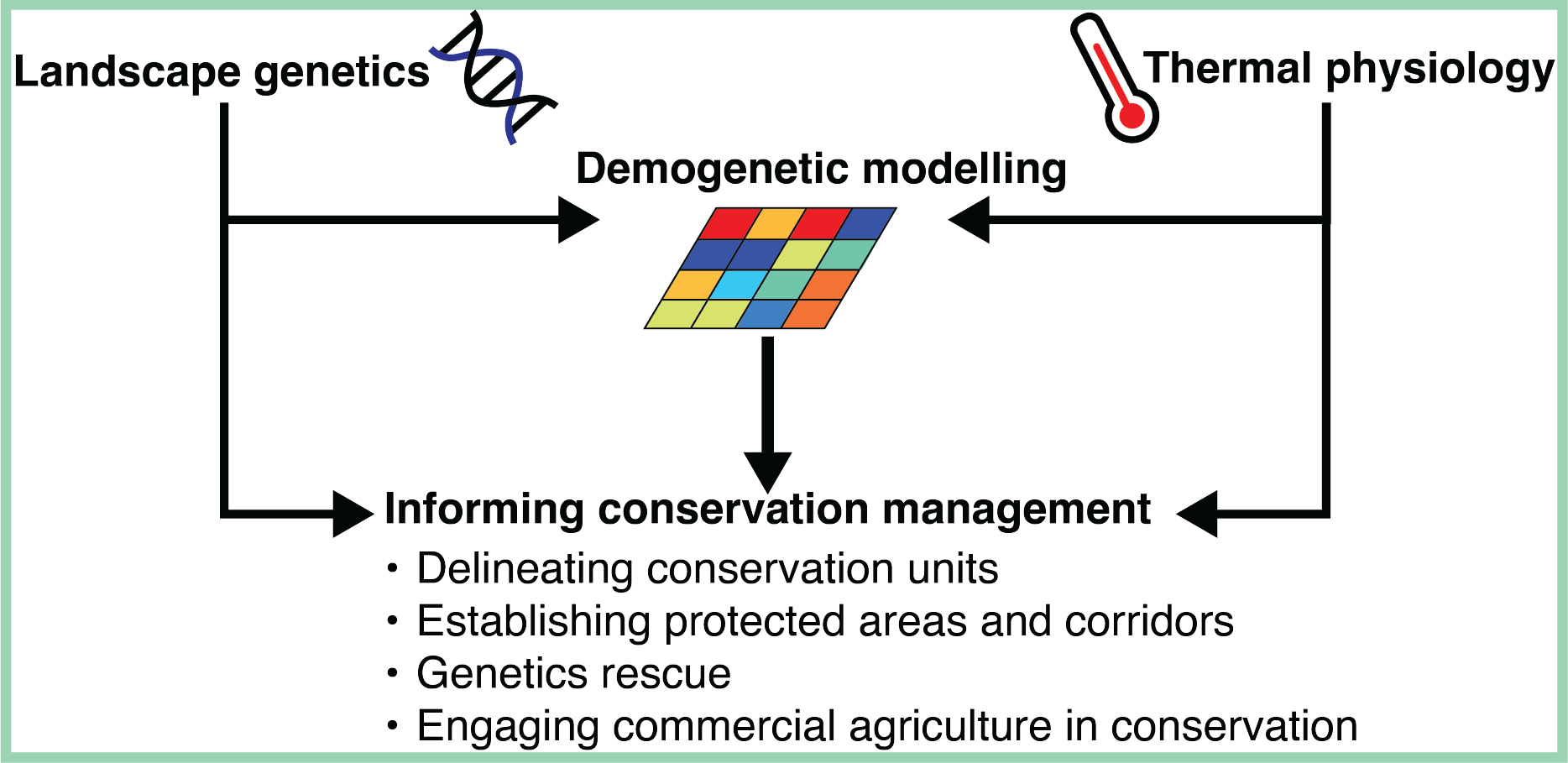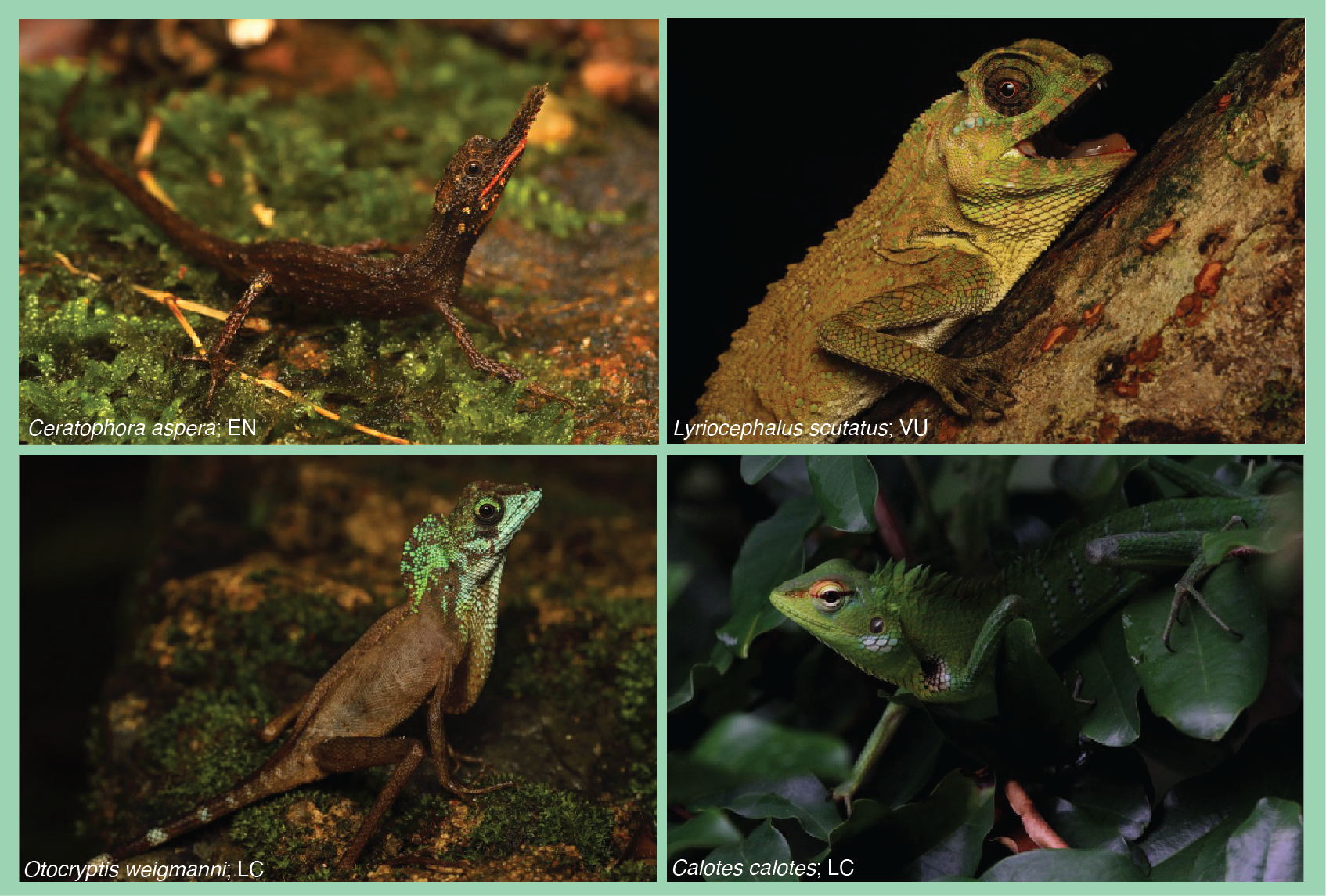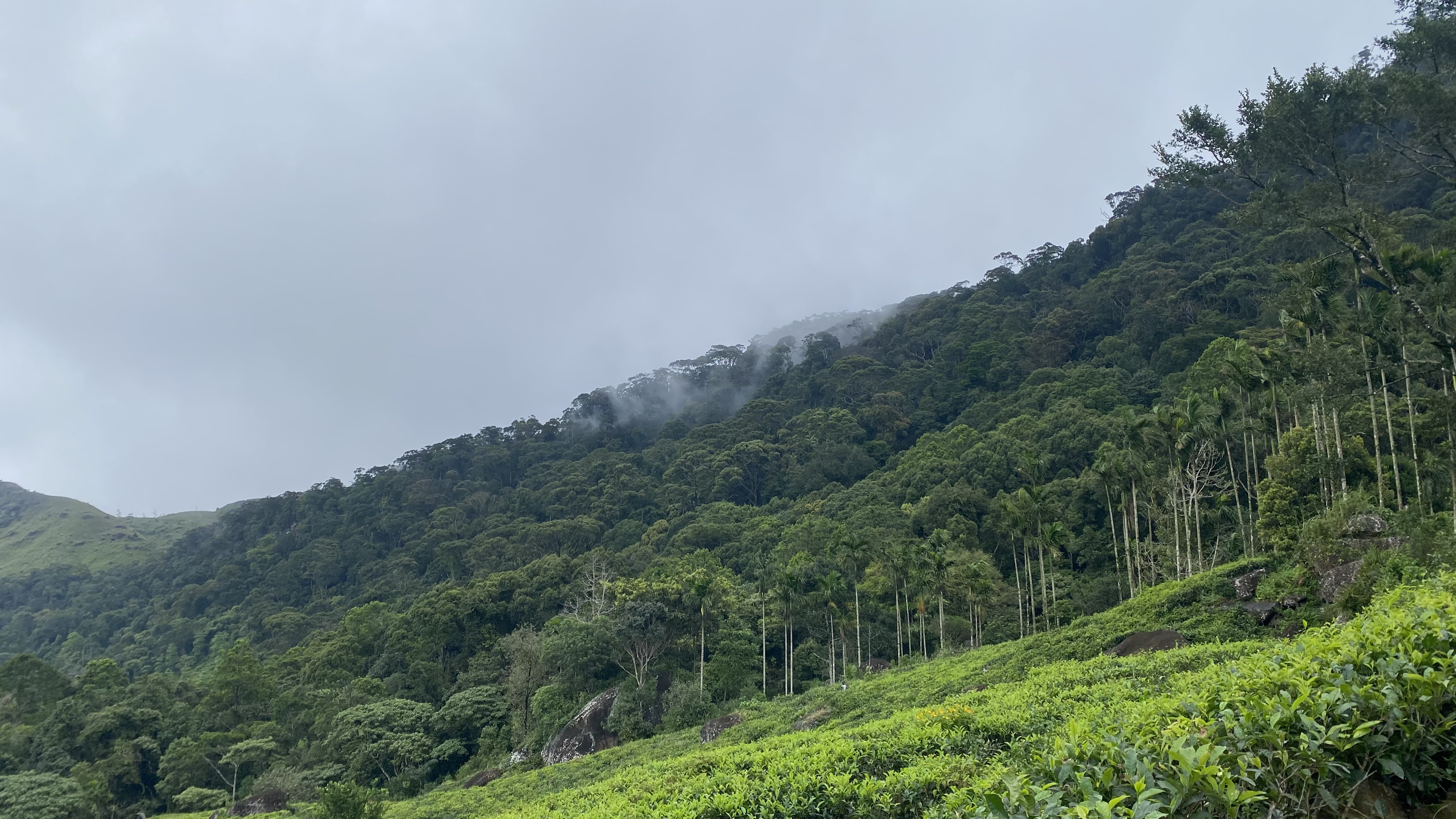To persist in the face of climate change, organisms must evolve, acclimate, or disperse. However, dispersing to favourable climate niches is challenging for thermally specialized tropical ectotherms in highly fragmented habitats. Sri Lanka is an island biodiversity hotspot. Much of this biota is restricted to the southwestern rainforests. This region has experienced decades of anthropogenic habitat fragmentation caused by commercial plantation agriculture, and increasingly, the effects of climate change. The combined effects of fragmentation and climate change present a major challenge to the persistence of organisms in these rainforests. My PhD dissertation will take an integrative approach to determine vulnerability of agamid lizards in the rainforest ecoregion of Sri Lanka to climate change and habitat fragmentation.
I will use techniques in thermal physiology, landscape genomics, and demo-genetic modelling. Results from this study will be used to inform ecosystem-level and species-specific conservation management strategies.

 Focal species
Focal species

Tea plantation adjacent to rainforest, Eastern Sinharaja, Sri Lanka